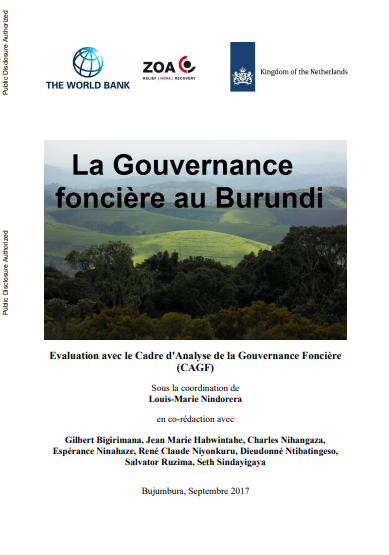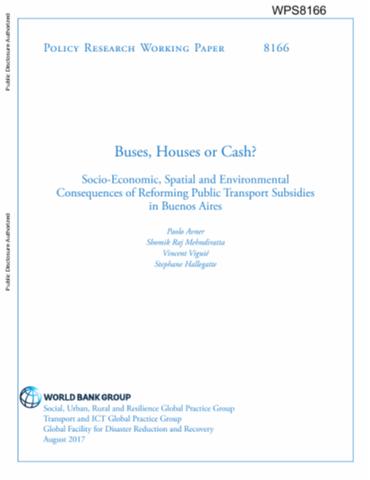The World Bank is a vital source of financial and technical assistance to developing countries around the world. We are not a bank in the ordinary sense but a unique partnership to reduce poverty and support development. The World Bank Group has two ambitious goals: End extreme poverty within a generation and boost shared prosperity.
- To end extreme poverty, the Bank's goal is to decrease the percentage of people living on less than $1.25 a day to no more than 3% by 2030.
- To promote shared prosperity, the goal is to promote income growth of the bottom 40% of the population in each country.
The World Bank Group comprises five institutions managed by their member countries.
The World Bank Group and Land: Working to protect the rights of existing land users and to help secure benefits for smallholder farmers
The World Bank (IBRD and IDA) interacts primarily with governments to increase agricultural productivity, strengthen land tenure policies and improve land governance. More than 90% of the World Bank’s agriculture portfolio focuses on the productivity and access to markets by small holder farmers. Ten percent of our projects focus on the governance of land tenure.
Similarly, investments by the International Finance Corporation (IFC), the World Bank Group’s private sector arm, including those in larger scale enterprises, overwhelmingly support smallholder farmers through improved access to finance, inputs and markets, and as direct suppliers. IFC invests in environmentally and socially sustainable private enterprises in all parts of the value chain (inputs such as irrigation and fertilizers, primary production, processing, transport and storage, traders, and risk management facilities including weather/crop insurance, warehouse financing, etc
For more information, visit the World Bank Group and land and food security (https://www.worldbank.org/en/topic/agriculture/brief/land-and-food-security1
Resources
Displaying 96 - 100 of 4907Climate-Smart Agriculture in Pakistan
La gouvernance fonciére au Burundi : Evaluation avec le cadre d'analyse de la gouvernance foncière (French)
The Land Governance Assessment Framework (LGAF) is a diagnostic tool to assess the status of land governance at country level using a participatory process that draws systematically on existing evidence and local expertise rather than on outsiders.
Towards a Sustainable Land Administration and Management System in Myanmar - Land Sector Needs Assessment; Thematic Policy Notes
This policy note on Land Policy and Regulatory Framework in Myanmar is the first of five policy notes
prepared under the Land Sector Needs Assessment technical assistance initiative between the World Bank
and the Ministry of Agriculture, Livestock and Irrigation, the Ministry of Natural Resources and
Environmental Conservation and the General Administration Department of the Ministry of Home Affairs,
and the Yangon City Development Committee. It is intended to assess and inform the land related
Towards a Sustainable Land Administration and Management System in Myanmar မြနမ် ာနိငု ်င၏ံ ရေရှညတ် ညတ် သံ့ ည့ ် မြေယာအပု ခ် ျုပေ် ရးနှင့ ် စီမ
မြနမ် ာနိငု ်င၏ံ
ရေရှညတ် ညတ် သံ့ ည့ ်
မြေယာအပု ခ် ျုပေ် ရးနှင့ ်
စီမခံ န့ခ် ွဲမစှု နစ်ဆသီ ိ့…ု .
မြေယာကဏ္ဍ၏ လိအု ပခ် ျကမ် ျားအပေါ် စစီ စအ် ကဲဖြတမ် ဆှု ိငု ရ် ာ
အကြောငး် အရာအလိကု ် မဝူ ါဒရေးရာမတှ စ် မု ျား
Buses, Houses or Cash?
Transit subsidies in the urban area of Buenos Aires are high, amounting to a total of US$5 billion for 2012. They have been challenged on several counts: suspected of driving urban sprawl and associated infrastructure costs, diverting resources from system maintenance, and failing to reach the poor among others. In this context, this paper examines the impacts of cost recovery fares under a range of different policy scenarios that could cushion the impact of fare increases.









